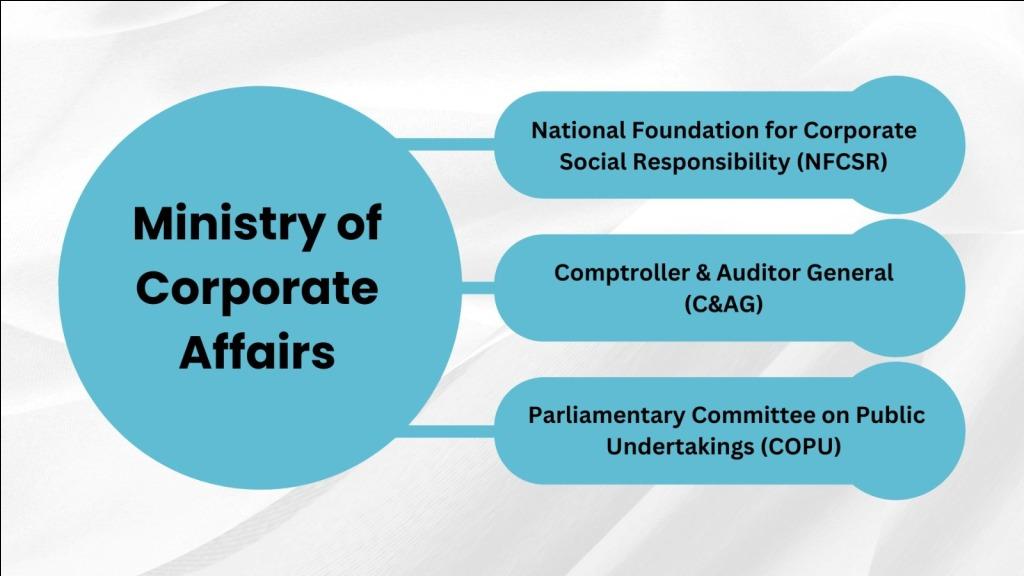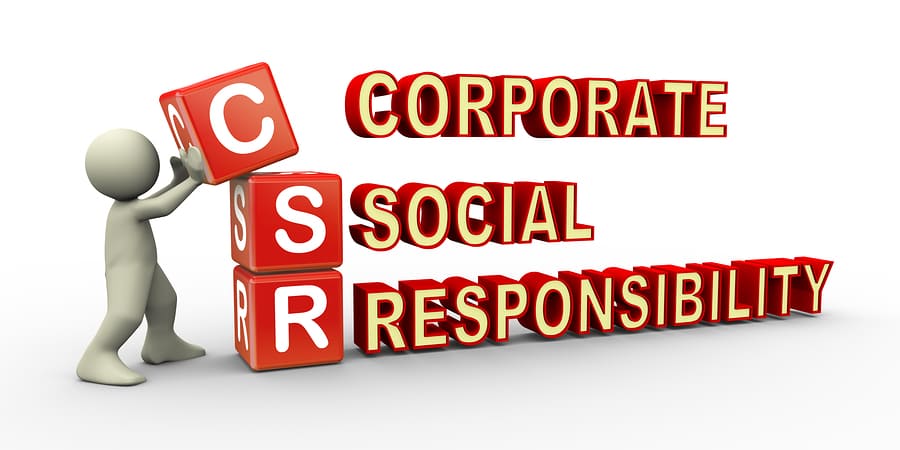CSR has become a fundamental component of modern business practices especially in India where the government has made it mandatory for any profit making organisation. The purpose is to make corporates contribute to social welfare, benefit backward and underprivileged communities – be it their education, healthcare, skill development or basic needs, and at the same time doing something for environmental sustainability.
Regular monitoring and evaluation of Corporate Social Responsibility (CSR) programmes and initiatives help to ensure that the projects attain their goals and create an impact. This is also necessary to help companies measure how much is the impact of their CSR goals, research on investments, and generate an evidence base. Monitoring of CSR activities enhances a company’s credibility in front of stakeholders.
What are the agencies that monitor CSR activities in India? The CSR Journal takes a look.
Why monitoring CSR activities is necessary
Monitoring the CSR activities of a company is necessary for the following reasons:
Helps to assess impact
Assessing the impact of CSR programmes and initiatives is necessary to understand their effectiveness and the extent to which they accomplish the proposed goals. Impact assessment involves systematically measuring the outcomes and changes resulting from CSR activities. This practice helps companies understand whether their CSR initiatives are creating any positive social, environmental, and economic impact.
Ensures Accountability and Transparency
Monitoring CSR initiatives enhances accountability and transparency, which are significant for building trust with stakeholders, including employees, customers, investors, and the community. Accountability ensures that companies adhere to their CSR commitments and are held responsible for their actions, while transparency involves openly sharing information about CSR efforts, successes, and challenges.
Regularly publishing detailed CSR reports (which is often included within the Integrated Annual Report of a company) allows stakeholders to see the progress and impact of Corporate Social Responsibility initiatives. These reports should include clear metrics, methodologies, and results, along with explanations of any shortcomings or failures to implement a particular CSR project. Transparency in reporting helps to build trust and credibility, which delivers a message to the stakeholders that the company is sincere in its efforts.
Helps in planning future CSR initiatives
Monitoring and evaluation provide useful insights that help in the planning and execution of future CSR initiatives. By analyzing the data collected, companies can identify trends, successes, and areas for improvement. This information enables businesses to make data-driven decisions, ensuring that resources are allocated efficiently and that future initiatives are designed to maximize impact.
However, monitoring CSR is not devoid of its share of challenges such as Complexity of Measurement, Data Collection and Management, Resource Constraints and difficulty in engaging Stakeholders.
Monitoring agencies of CSR
Corporate Social Responsibility (CSR) activities are monitored by multiple agencies including the government and third-party agencies. Some companies also monitor their own CSR initiatives and programmes.
1.Government of India
In India, the Central Government monitors the CSR provisions compliance through the disclosures made by the companies on the MCA 21 portal of the Ministry of Corporate Affairs (MCA). The Government of India has the authority to take action against the non-compliant companies for any violation of CSR provisions.
The Ministry of Corporate Affairs (MCA) has several mechanisms to monitor Corporate Social Responsibility (CSR) activities in India. These include the National Foundation for Corporate Social Responsibility (NFCSR), Comptroller & Auditor General (C&AG) and the Parliamentary Committee on Public Undertakings (COPU).

National Foundation for Corporate Social Responsibility (NFCSR)
National Foundation for CSR is an apex National Institution being housed at the Indian Institute of Corporate Affairs (IICA). It has been established to build an enabling environment for the corporate sector to work in collaboration with Government and civil society organization for effective contribution towards sustainable growth and development. NFCSR has been evolved as a national level institution that can effectively enable and inform the spirit of CSR legislation.
NFCSR not only provides research support to the MCA but also advocates for policy and helps to create a conducive environment for the corporate sector so that it is able to work with the government and civil society and contribute to a sustainable growth.
Comptroller & Auditor General of India (C&AG)
Mandated by the Constitution of India, Comptroller & Auditor General of India (C&AG) promotes accountability, transparency and good governance through high quality auditing and accounting and provides independent and timely assurance to the Legislature, the Public and the Executive, that public funds are being collected and used effectively and efficiently. The C&AG audits CSR policies with a focus on the expenditure of Public Sector Undertakings (PSUs).
Parliamentary Committee on Public Undertakings (COPU)
The Committee on Public Undertakings examines the reports and accounts of Public Sector Undertakings (PSU.) The functions of this committee are mentioned in the fourth schedule of the Rules of Procedure and Conduct of Business in Lok Sabha. The COPU conducts horizontal studies on the CSR of PSUs.
2.Third-party agencies
Third party agencies independently monitor and evaluate CSR projects. Their job is to make sure that projects are implemented as planned and achieve their desired impact.
For example, Consultivo is CSR Project Monitoring and Evaluation Consultancy which carries out Independent Midterm (or Midline) and End line Monitoring and Evaluation (M&E) of CSR and other development projects in India during its entire life cycle. The company ensures that the projects are executed as per the plan.
ITAD’s independent monitoring and verification services make sure that the reported results are reliable, ensuring that programmes are achieving the expected outcomes and delivering for end users.
Another agency SoulAce has been working in the space of Monitoring for a long time and has an established approach, methodology and supportive tools. Their approach focuses on either obtaining Key Performance Indicators (KPIs), budget and timelines from MoU or formalizing the same with CSR and NGO team at the beginning of the project.
This is followed by check-in with NGO team and working with them to ensure the project progresses as per the planned timelines and budget to meet the committed KPIs. This agency also interacts with CSR team to update on the project specific progress and send formal updates on regular basis. It also works with CSR departments to ensure that all the information required for regulatory compliance is also available to them.
3.Companies
Some companies monitor their own CSR activities instead of being dependent on others. This is normally done through regular progress reports, staff performance monitoring, and other techniques.
For example, companies like Larsen & Toubro, Wipro, Hindustan Unilever Limited, Tata Consultancy Services, Vedanta, Axis Bank, Bajaj Auto Ltd, Grasim Industries Ltd, HDFC Bank, ICICI Bank Ltd and HCL Technologies monitor their own CSR activities.
Companies which fall under Section 135 of the Companies Act, 2013 must file Form CSR-2 to report their CSR activities. This has been made compulsory since 2021-22. This is an additional form apart from the annual financial statements filed by the organisation through Form AOC-4.
As instructed by the Ministry of Corporate Affairs, companies undertaking Corporate Social Responsibility also mandatorily have to disclose their CSR activities undertaken in the said financial year in their integrated Annual Report. This should also include details about how much money have been spent on a particular project and the areas in which it is operational, implementing agencies if any for a specific CSR programme, and the project’s impact like how many individuals benefitted through the project in a given FY.
4.External Auditing Firms
External Auditing Firms calculate the return on investment (ROI) for CSR projects every six months. This is done until at least five years after the project’s completion.
For example, Green Edge Compliance Group Private Limited (Grecom) is a CSR, Social Compliance and QHSE Company. Grecom provides independent services ensuring business sustainability and have a global benchmark for CSR, Social Compliance, Integrity, Human Resources and QHSE for Food and Non Food Manufacturers, retailers and importers, who are engaged in Indian and International business. Grecom assists them to work in adherence to Indian industry, the Food Safety and Standards Authority of India (FSSAI) and international regulations and norms.
Conclusion
Monitoring, evaluation, and reporting of a CSR project are necessary for the successful implementation to ensure that the said project achieves the required objective. It is also equally important to ensure that the project makes the desired impact. Therefore monitoring of CSR initiatives should be done at regular intervals.


